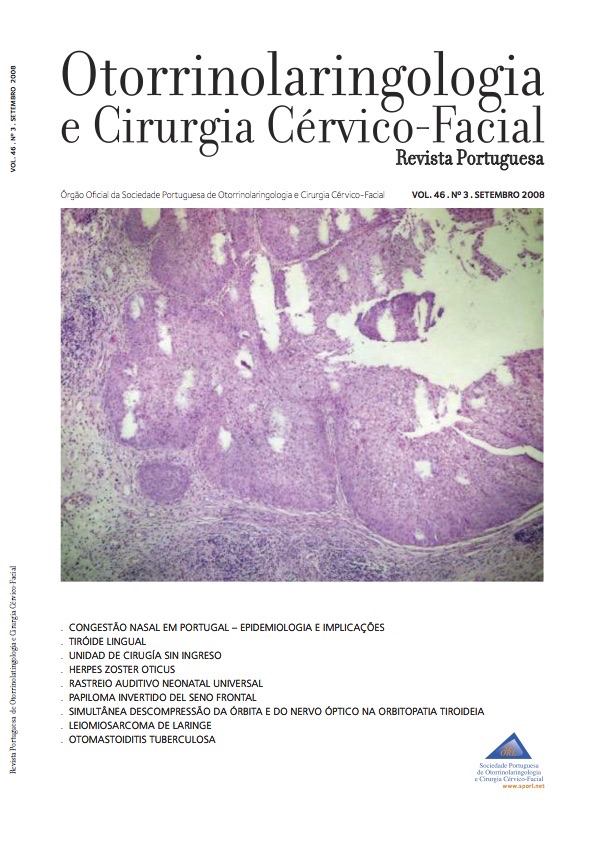Herpes Zoster Oticus: long term evolution
DOI:
https://doi.org/10.34631/sporl.400Keywords:
Herpes zoster oticus, Ramsay Hunt syndrome, facial paralysis, quality of life, Hearing loss, synkinesisAbstract
Objectives: Herpes zoster oticus (HZO) or Ramsay Hunt syndrome has been associated with a poor outcome in respect to the recovery of facial function and vestibule-cochlear dysfunction. This study aimed to evaluate the functional recovery of patients admitted with this diagnosis at the Hospital S. João in the last twelve years.
Material and Methods: Retrospective review from clinical charts of 23 patients with HZO and clinical evaluation of those patients with follow-up superior to twelve months. Additionally patients were submitted to audiometry and filled a questionnaire to evaluate quality of life post facial paralysis (FaCE) and of synkinesis based in the Synkinesis Assessment Questionnaire (SAQ).
Results: Significant differences were found in the majority of the tested audiometric frequencies between the affected and contralateral ears upon diagnosis which tended to have a slight recovery over time. More than half of patients showed late sequelae of the facial function with variable degrees of synkinesis. Alteration in facial movements and ocular discomfort were the main complaints of patients.
Conclusions: On the long range, HZO leaves auditory and facial function sequelae which apparently originate a slight subjective social impact to the patients.






